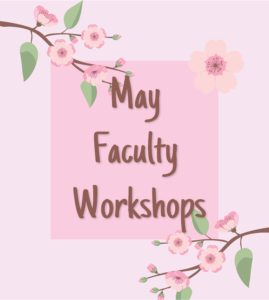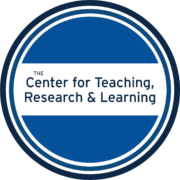2020 May Faculty Workshops Session Archive
Session Dates

Tuesday, May 12
Being a Part of DC, Not Apart from DC: A Community-Based Learning Faculty Workshop
1:00pm – 4:30pm
This workshop focuses on (re)designing a course syllabus to incorporate Community-Based Learning & Research (CBLR), a pedagogy that deepens student learning through collaboration with a nonprofit or school in the DC area. This “high impact practice” advances AU’s Strategic Plan and helps students understand better issues that impact local residents and organizations. Participants will discuss best practices & challenges for collaboration with community partners, compare direct service, project-based work, and community-based research, and explore ways to incorporate critical thinking and reflection.
Wednesday, May 13
Teaching in the Core: Strategies for Creating Course Consistency
9:15am – 10:45am
How can we create consistency across multiple sections of a course without forfeiting the unique strengths that each faculty member brings to their teaching? This session will feature a panel of faculty who have led various efforts in their units to foster course consistency.
Teaching in the Core: University College Faculty Cohort Collaboration
11:00am – 12:30pm
In this session, faculty teaching in the Fall 2020 University College living-learning community will work with their themed cohorts to solidify plans that impact course preparation and syllabus creation. Cohorts will also make cohort-based co-curricular plans and identify information that can potentially be shared with incoming students following UC confirmations.
Thursday, May 14
Teaching with Open Educational Resources
9:30am – 12:00pm
Students have a lot of expenses as part of higher education. In this workshop, we will discuss various options when it comes to teaching with freely available, open access materials. This includes the use and creation of open educational resources such as textbooks and open source statistical software.

